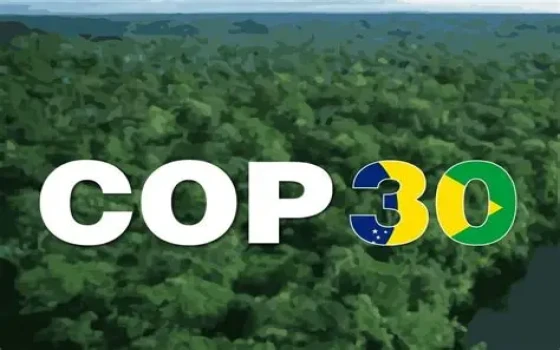
UN COP30: Escalating Climate Misinformation Undermines Efforts to Avert Catastrophic Global Warming... First-ever Declaration on Information Security Signed by 14 Countries

- Europe and Arabs
- Thursday , 13 November 2025 9:24 AM GMT
Belém, Brazil: Europe and the Arabs
Negotiators opened the 30th UN Climate Change Conference (COP30) in Belém, Brazil, with a stark warning: the surge in climate disinformation is undermining efforts to avert catastrophic global warming. These falsehoods, spreading at an unprecedented rate online, threaten to derail the fragile progress made on climate action.
According to the UN News Daily, Brazilian President Luiz Inácio Lula da Silva set the tone for the opening session, declaring that COP30 must represent "another defeat for climate change deniers."
On Wednesday, 12 countries—including Brazil, Canada, France, Germany, and Spain—signed the first-ever declaration on the integrity of information related to climate change, pledging to combat the flood of false content and protect those at the forefront of truth, including environmental journalists, scientists, and researchers. The declaration—unveiled as part of the Global Climate Change Information Integrity Initiative—calls for concrete steps to dismantle climate disinformation networks and protect evidence-based voices from harassment and attacks. Brazilian Minister of Digital Policy, João Brandt, stated that the goal is simple yet urgent: “to create a wave of truth.”
The initiative, launched in June of this year, is a partnership between Brazil, the UN Department of Global Communications, and the United Nations Educational, Scientific and Cultural Organization (UNESCO).
A direct threat
Fredeco Assis, the UN Climate Change Conference Special Envoy for Information Integrity, warned of the dangers of disinformation, telling UN News: “Disinformation, driven by vague worldviews, fuels political extremism and puts lives at risk,” adding that there is a real danger of it interfering with climate negotiations.
Assis continued, “There is widespread recognition that disinformation can influence and jeopardize every aspect of the COP process, including diplomatic negotiations, the agenda, mobilization, and summits. All our efforts will be at risk if we fail to properly address disinformation, which stems from denial.”
He pointed to the role of algorithms in amplifying “conspiratorial and manipulative” content, often employing “sophisticated techniques to spread false messages.” The Special Envoy’s task is to keep the issue in the public eye and mobilize political, religious, and social leaders, civil society, and the media to respond.
Decoding Climate Lies
For the first time, information integrity was placed on the conference agenda, an achievement described by UNESCO’s Guilherme Canella as long overdue. Speaking to UN News, Canella emphasized that the global initiative aims to uncover the mechanisms driving climate disinformation. He said: “We still know very little about the reasons behind this. For example, who funds these publications, and why do they spread faster than other types of content? How does this happen? If we don’t understand these mechanisms, it will be very difficult to develop effective strategies to combat this phenomenon. The core of this global initiative is precisely to fund investigative journalism and research projects, particularly in the Global South, to uncover the truth about what is happening.”
The Global Climate Change Information Integrity Fund, established under this initiative, has attracted 447 proposals from nearly 100 countries. With initial support of $1 million from Brazil, the fund is financing its first round of projects; almost two-thirds of them are from developing countries. Canella said it was “very rewarding” to see this issue “strongly embraced at COP30.”
Disinformation Tactics
Maria Clara Moraes, a UN-accredited advocate and co-founder of the Marias Verdes Platform, is well aware of the nature of this battle. With over half a million followers on TikTok, she says combating climate disinformation is “absolutely possible, but also incredibly difficult.” She warned that these campaigns are highly organized and “backed by powerful forces, particularly the fossil fuel industry,” adding that their narratives change over time.
She continued: “There are many types of disinformation. One of the most powerful is saying it’s too late, that nothing can be done, or that events like the climate conference don’t make a difference. That’s also disinformation. Or saying it’s useless, too slow, too complicated, too frustrating. But we must constantly emphasize the value of multilateralism and the importance of spaces like this.”
A Generation That Refuses to Give Up
Despite the challenges, Morais told us she sees hope in younger generations. She said awareness of the climate emergency is rapidly growing through the production of content grounded in science and sustainability.
According to her, young people are “a great source of hope and optimism.” She urged everyone to play their part in creating "small revolutions" through everyday choices that support climate action and drive systemic change.
As the UN Climate Change Conference (COP30) confronts the existential challenge of climate change, the battle for truth has become as crucial as the fight to reduce emissions. If misinformation prevails, the world risks not only losing time but also losing trust, the very foundation of global cooperation. In Belém, leaders drew a clear line: the climate crisis cannot be solved amid a fog of lies.


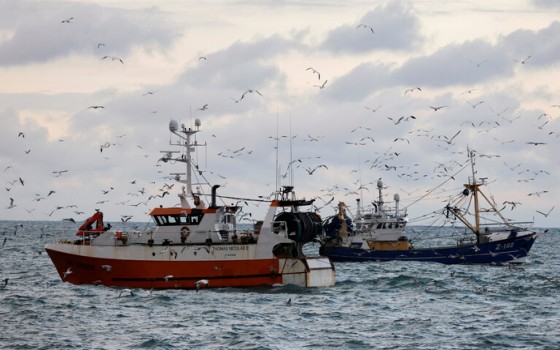

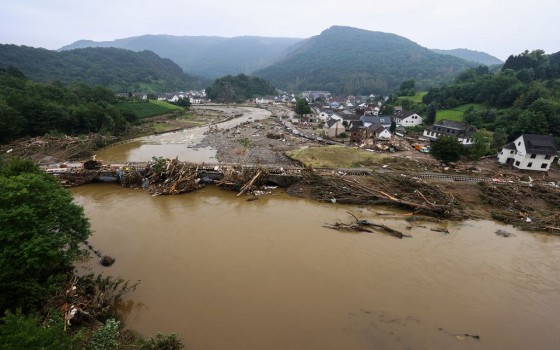
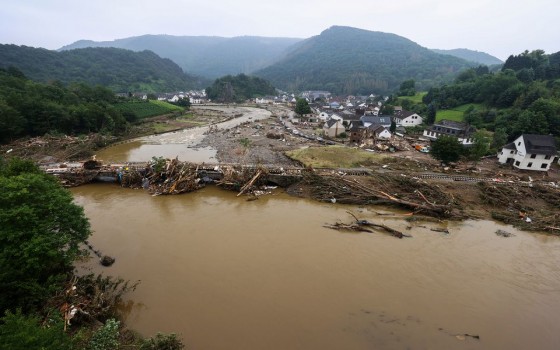


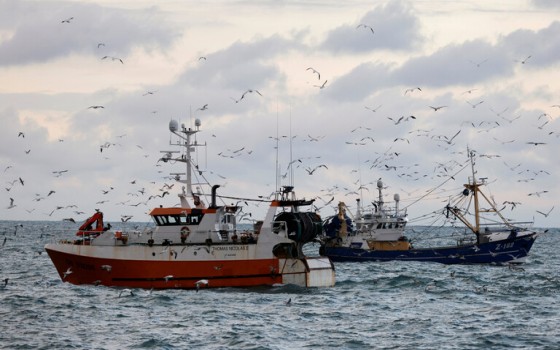



No Comments Found